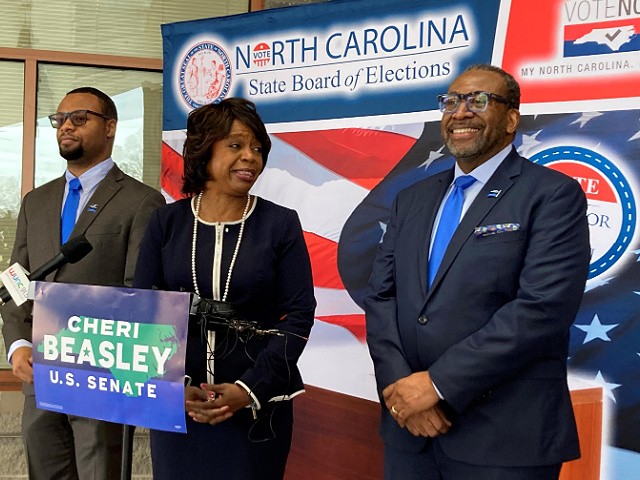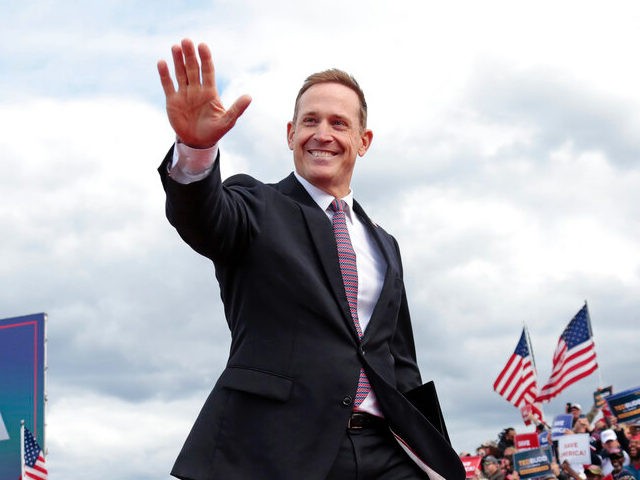Rep. Ted Budd (R-NC) is leading his Democrat competitor, former Chief Justice of the North Carolina Supreme Court Cheri Beasley, in the race to fill retiring Sen. Richard Burr’s (R-NC) U.S. Senate Seat, a new poll found.
When 635 registered North Carolina voters were asked “If the November 2022 election for U.S. Senator of North Carolina were to be held today, would you vote for Republican Ted Budd, Democrat Cheri Beasley, or some other candidate?” 47 percent said they would vote for Budd and 39 percent for Beasley. Twelve percent of those polled said they are still undecided and 2 percent expressed support for some other candidate.
North Carolina Poll by ECU Center
2022 Senate
(R) Budd 47% (+8)
(D) Beasley 39%2024 Presidential Election
(R) Trump 46% (+9)
(D) Biden 37%This pollster had Biden winning NC by 2 points in 2020 (Dem +3.3% error)
🗓️ May 19-20 / 🗳️ 635 RVhttps://t.co/zrb13aSVpL
— InteractivePolls (@IAPolls2022) May 23, 2022
Budd maintained a lead over Beasley with both men (50 percent to 38 percent) and women (44 percent to 40 percent), and among voters without a four-year college degree (51 percent to 31 percent). Forty-seven percent of voters with four-year degrees said they would vote for Beasley, compared to 43 percent for Budd. Out of the 12 percent of voters who said they are undecided, 68 percent do not have a college degree and 32 percent do.

Democratic U.S. Senate candidate Cheri Beasley, center, laughs with husband Curtis Owens, right, while son Matthew Owens, watches, before she speaks with reporters at the North Carolina State Fairgrounds in Raleigh, N.C., on Thursday, Feb. 24, 2022. (Gary D. Robertson/AP)
Budd’s lead over Beasley was strongest in eastern North Carolina, 54 percent to 33 percent, as well as in Piedmont (48 percent to 31 percent) and the western part of the state (54 percent to 37 percent). Beasley polled better with voters in the Raleigh/Durham area, 49 percent to 39 percent, and in Charlotte, 43 percent to 40 percent. Budd held an advantage over Beasley in every age category except for voters under 40 years old, where Beasley leads 41 percent to 37 percent.
“When asked how they plan to vote in their congressional district races, 47 percent of registered voters say they intend to vote for the Republican candidate and 44 percent say they will vote for the Democratic candidate,” according to the poll report.
Both Budd’s and Beasley’s primary victories on May 17 were declared less than a hour after the polls closed, both candidates blowing out their competitors and setting themselves up for a battle in November. Polling released soon after the primary election showed Budd with a narrower lead over Beasley, 44 percent to 43 percent, though Budd led with unaffiliated voters 40 percent to 32 percent. Polling before the primary election showed Budd leading Beasley 48 percent to 41 percent in a hypothetical matchup.
The ECU Center for Survey Research conducted the poll May 19-20, and the Credibility Interval is ± 4.5 percentage points.

COMMENTS
Please let us know if you're having issues with commenting.